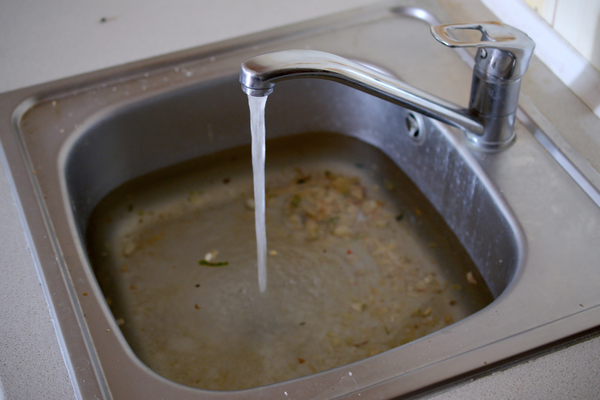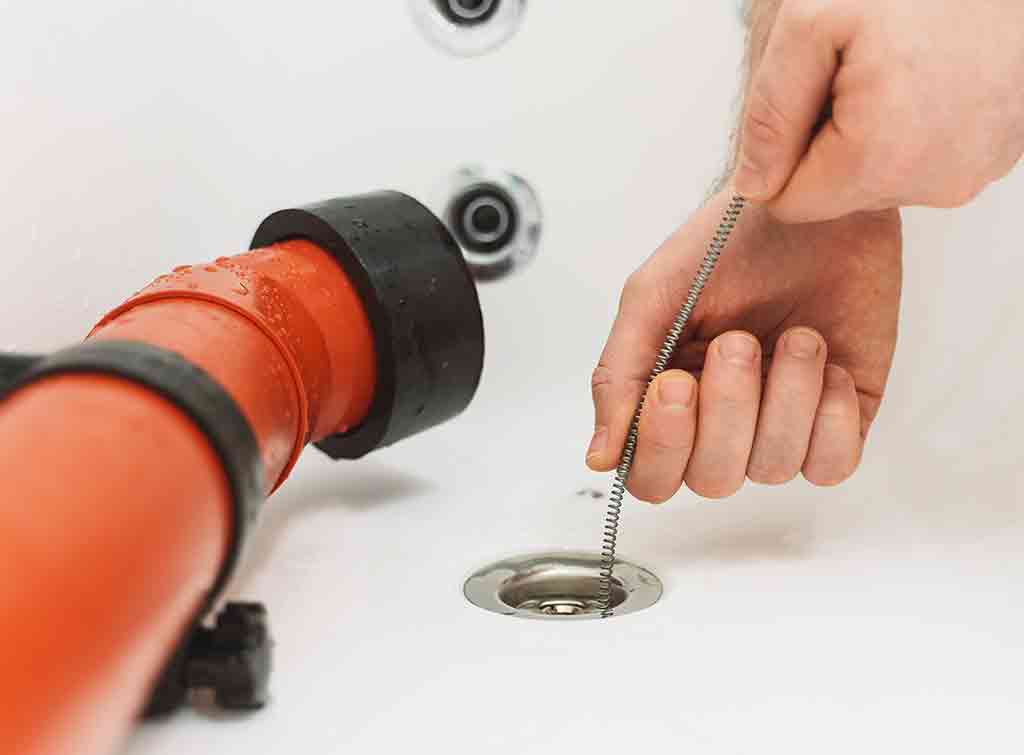Methods To Fix A Slow-Draining Sink
Methods To Fix A Slow-Draining Sink
Blog Article
Were you trying to find facts involving How to Fix a Slow Draining Sink?

Intro
We have actually all existed: You're brushing your teeth or washing your hands, and you notice the water merging in the sink. Instead of promptly swirling down the tubes, it sticks around, turning your once-refreshing early morning routine right into a miniature overload scene. A slow-draining sink isn't just frustrating; it's typically an indicator of larger pipes problems prowling below the surface area. The good news is that the majority of slow-draining sinks can be repaired with a little knowledge, a few fundamental tools, and some perseverance. All set to tackle this project head-on? Let's roll up our sleeves and dive right in.
Comprehending the Causes of a Slow-Draining Sink
Before you start poking around in your pipes, it helps to recognize what may be creating the slowdown. Understanding the origin makes it easier to pick the ideal solution.
Tools and Materials You'll Need
The right devices make all the distinction. Fortunately, you won't require a completely equipped plumbing's van to do the job.
Step-by-Step Overview to Fixing a Slow-Draining Sink
Currently, allow's get into the nitty-gritty. This step-by-step process will direct you via straightforward strategies to recover your sink's drain.
Step 1: Get Rid Of and Clean the Stopper
Frequently, the stopper (that small plug you lower to block water) is the first culprit. Remove it thoroughly and clean off any kind of hair or gunk caught around its base. Wash it thoroughly before placing it back in place.
Step 2: Use a Bettor to Displace Debris
Got that plunger ready? Setting it over the drain and provide it a couple of firm pumps. The concept is to develop suction that can loosen any type of clog. If you see bits of particles drifting up, you're on the ideal track.
Step 3: Try a Drainpipe Serpent or Cord Hanger
If the plunger doesn't suffice, it's time to bring out the drain serpent. Gently feed it into the drain and spin as you go. You might really feel some resistance-- that's likely the blockage. Keep turning and pulling till you remove the blockage. If you don't have a drainpipe snake, a corrected cable wall mount can work in a pinch.
Tip 4: Use a DIY Drain Cleanser
An all-natural cleaner made from baking soda and vinegar can break down residual gunk. Pour half a cup of cooking soft drink right into the drain, complied with by half a mug of vinegar. Allow it fizz for around 15 mins, then flush with hot water. This chemical reaction typically does marvels for small obstructions.
Step 5: Reconstruct and Test the Sink
Put every little thing back together and run the tap. Does the water now swirl down the drain at a respectable speed? If yes, offer yourself a pat on the back. If not, don't anguish-- there are still a couple of even more dress up your sleeve.
Crucial Devices for Do It Yourself Fixes
A plunger is your best beginning point. A little, sink-sized plunger develops suction that can dislodge small clogs. For even more relentless clogs, a drain serpent (sometimes called a plumbing's auger) works marvels. A set of gloves, a flashlight, and maybe a set of protective goggles are additionally helpful.
Suggested Cleaning Solutions
Light meal soap and hot water can assist break down greasy accumulation. A mix of baking soda and vinegar is a reliable home remedy, and enzymatic cleaners use a more eco-friendly technique. Maintain chemical drain cleansers as a last option, as they can be severe on your pipes.
Common Offenders Behind Slow Drainage
So, what's obstructing things up? Typically, it's a mixture of everyday debris-- believe hair, soap scum, tooth paste deposit, and remaining food particles. In time, these little bits build up and hold on to the pipe wall surfaces, gradually narrowing the passage and making it harder for water to travel through. In some cases, natural resource from difficult water can also contribute to the gunk, creating the perfect tornado for persistent clogs.
When is it Time to Take Action?
If you observe the water draining pipes slower than usual, it's an excellent idea to step in earlier rather than later on. Waiting also long could cause finish blockages, undesirable odors, and even pipe damage. If the water takes greater than a few secs to remove after shutting off the faucet, consider it a red flag and prepare yourself to place on your do it yourself hat.
Security First: Safety Measures and Prep work
Prior to you launch into unclogging setting, think about safety. You're dealing with possibly filthy water and particles, so slip on a set of handwear covers. If you're using chemical cleansers, make certain the room is well-ventilated and follow the instructions on the label.
Safety Equipment and Workspace Arrangement
Put down some old towels or rags around the sink location to capture sprinkles. Eliminate any kind of things that might get in your means, like soap dispensers or toothbrush owners. See to it you have excellent lighting-- get hold of a flashlight if required.
Alternative Methods for Stubborn Clogs
Not all obstructions are developed equivalent. If your sink still declines to comply, take into consideration these different services.
Sodium Bicarbonate and Vinegar Method
We currently discussed this, however it's worth noting once again. This gentle, environment-friendly approach is safer than chemical cleansers and usually fairly reliable.
Chemical Drainpipe Cleaners
Enzyme-based cleaners use all-natural bacteria to digest organic matter. They're an excellent option if you're aiming to avoid harsh chemicals. Just remember, they may take a bit longer to function their magic.
Chemical Drainpipe Cleaning Company: Advantages And Disadvantages
Chemical cleansers can blow up through hard clogs quick, yet they're not without downsides. They can generate warmth and fumes, damages pipelines if used excessively, and pose ecological threats. Utilize them moderately, and constantly adhere to the directions meticulously.
Preventive Measures to Keep Your Sink Flowing
Prevention is the very best treatment. By taking on a few straightforward routines, you can maintain your sink from decreasing in the first place.
Regular Cleansing Routines
Wipe down the sink basin and component location regularly. Get rid of hair or food particles prior to they have a chance to wash down the drain.
Staying Clear Of Damaging Materials Down the Drain
Reconsider prior to discarding coffee grounds, oil, or fibrous vegetable scraps down the sink. These offenders hold on to pipeline walls, producing clogs gradually.
Regular Maintenance Checks
Schedule a quick monthly assessment. Run warm water through the sink for a few minutes, taking notice of the flow. If it appears slow, act quickly prior to it comes to be a full-blown blockage.
When to Call a Specialist Plumber
Often, no matter how hard you attempt, that block simply won't budge. That's when it's time to generate the pros.
Signs That Show an Extra Severe Problem
If your sink drains gradually in spite of multiple attempts, or if you notice water backing up in other components (like your shower or bathroom), you may have a more serious pipes issue hiding much deeper in the system.
Stabilizing DIY Initiatives with Professional Assistance
While do it yourself can conserve you money and supply a feeling of achievement, there's no embarassment in calling an expert. An expert plumbing professional can evaluate your entire plumbing configuration, making sure there's no underlying damage or lasting issue that might cost you much more down the road.
Contrasting Prices and Long-Term Solutions
Before choosing, consider the big picture. An economical, quick fix could fix the trouble momentarily, however buying a more irreversible service could save you money and stress in the future.
Evaluating the Expenditures of Do It Yourself vs. Professional Fixes
DIY repairs typically cost little bit more than the cost of a bettor or a container of baking soft drink. Specialist solutions, on the other hand, included a price however may prevent repeated concerns and pricey repairs later on.
Purchasing High Quality Fixtures and Upgrades
If your sink's design contributes to constant obstructions, it might be worth upgrading to higher-quality fixtures or altering the pipes layout. Consider this a financial investment in your home's capability and convenience.
Conclusion
A slow-draining sink can seem like a minor irritation, however it's typically an indicator that your pipes needs a little TLC. By recognizing the origin, using the right tools and strategies, and dedicating to straightforward safety nets, you can keep your sink moving easily. And when all else fails, never ever wait to employ an expert-- your home's pipes is worth the financial investment in treatment and maintenance.
Three Common Ways to Fix a Slow Drain
Baking Soda Method
Boil a full pot of water. Measure out cup of baking soda and pour it down the drain. Then take cup of the magical cleansing substance known as white vinegar and drop that down there too. Allow the mixture to fizz in the drain for five minutes as the vinegar and baking soda combine. Now dump in that whole pot of boiling water. This combination of cleaning substances should clear out anything that is causing your sink to drain slowly. If it doesn t...
Zip-It
If the baking soda method doesn t clear out your drain, it may be because a significant amount of hair and/or other debris has collected there and you need to remove it. Purchase a Zip-It tool at any home improvement or hardware store and insert it into your drain. It will catch any collected hair or debris that s blocking the flow of water. Pull it out. If it s got a big clump of hair, etc. on the end, you ve probably got your culprit.
Drain Cleaner
If these methods don t work, there is the standard drain cleaner that you can also buy in a hardware store or even your local grocery store. It s better if you can use a household solution, but these drain cleaners often work in a pinch. They re very simple to use. You generally just dump them in your drain and wait. If even this method is not effective, it may be time to call the plumber.
https://www.mrrooter.com/oneida/about-us/blog/2017/july/three-common-ways-to-fix-a-slow-drain/

Do you really like reading up on 7 Ways To Fix A Slow-Draining Sink Before You Call A Plumber? Post a short review further down. We'd be pleased to see your opinion about this blog. Hoping that you visit us again soon. Appreciated our article? Please share it. Let someone else locate it. We appreciate reading our article about 4 Tips to Fix a Slow Draining Sink.
Click Here Report this page